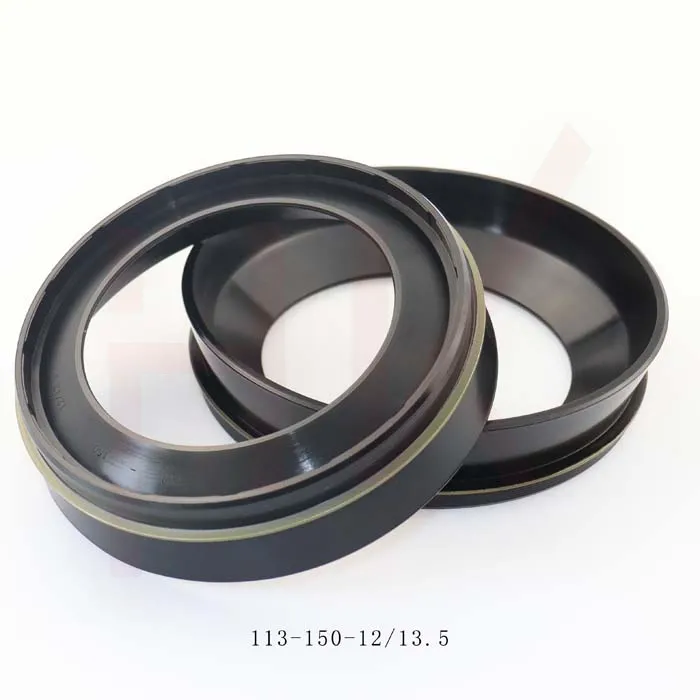Oct . 12, 2024 10:05 Back to list
cassette oil seal
The Importance of Cassette Oil Seals in Automotive Engineering
The automotive industry has evolved significantly over the years, incorporating advanced technologies and materials to improve the performance and longevity of vehicles. Among these innovations, cassette oil seals play a crucial role in ensuring efficient engine operation and preventing leaks. This article will explore the importance of cassette oil seals, their construction, and their applications in automotive engineering.
What is a Cassette Oil Seal?
A cassette oil seal, also known as a lip seal or radial seal, is a crucial component designed to minimize the leakage of lubricants, such as engine oil, transmission fluid, or other fluids within various automotive systems. It typically consists of a rubber sealing lip, a metal casing, and a spring that maintains the pressure on the lip against the shaft. The construction of the seal allows it to adapt to different operating conditions, such as temperature variations and pressure changes, which are common in automotive environments.
Key Functions of Cassette Oil Seals
1. Leak Prevention One of the primary functions of cassette oil seals is to prevent oil leaks from engines and other moving parts. Oil leaks can lead to inadequate lubrication, which may cause severe damage to engine components due to increased friction and heat. By maintaining a tight seal, these components ensure that lubricants remain where they are supposed to be, thereby enhancing the longevity of the engine.
2. Contamination Protection In addition to preventing oil leaks, cassette oil seals protect the internal components of an engine from dust, dirt, and other contaminants. Contaminated oil can lead to reduced performance and increased wear on engine parts. By keeping contaminants out, oil seals help maintain the integrity and efficiency of the lubricant.
3. Reduced Emissions A well-functioning cassette oil seal contributes to reducing harmful emissions from vehicles. Leaking oil can lead to combustion issues and increased exhaust emissions, which are detrimental to the environment. By ensuring a proper seal, these components play a role in meeting regulatory standards for emissions.
cassette oil seal

4. Enhanced Performance Cassette oil seals also contribute to the overall performance of an engine by ensuring optimal lubrication. When oil is contained effectively, it can do its job to reduce friction, dissipate heat, and provide a barrier against wear. This leads to improved engine performance, better fuel efficiency, and a smoother driving experience.
Applications in Automotive Engineering
Cassette oil seals are found in various automotive applications, including
- Engine Seals Commonly used in crankshafts, camshafts, and other rotating components within the engine. - Transmission Seals Used to contain transmission fluid within gearboxes and prevent leaks that could lead to costly repairs. - Wheel Bearings Oil seals are also utilized in wheel bearings to maintain lubrication and protect against dirt and moisture.
Maintenance and Replacement
Regular maintenance and inspection are essential to ensure the longevity of cassette oil seals. Signs of wear, such as visible oil leaks or abnormal engine noise, indicate that it may be time for replacement. Timely changes can prevent larger issues, saving car owners both time and money in the long run.
Conclusion
In conclusion, cassette oil seals are integral components in the automotive industry, ensuring the effective operation of engines and other systems. Their ability to prevent leaks, protect against contamination, reduce emissions, and enhance performance underlines their importance in modern vehicle design. As vehicles become more complex and performance-driven, the role of cassette oil seals will continue to be pivotal in promoting efficiency and reliability in automotive engineering. Regular maintenance, attention to changes, and timely replacement can help maximize the benefits these seals provide, ultimately leading to a better driving experience.
-
TCN Oil Seal Metal Ring Reinforcement for Heavy Machinery
NewsJul.25,2025
-
Rotary Lip Seal Spring-Loaded Design for High-Speed Applications
NewsJul.25,2025
-
Hydraulic Cylinder Seals Polyurethane Material for High-Impact Jobs
NewsJul.25,2025
-
High Pressure Oil Seal Polyurethane Coating Wear Resistance
NewsJul.25,2025
-
Dust Proof Seal Double Lip Design for Construction Equipment
NewsJul.25,2025
-
Hub Seal Polyurethane Wear Resistance in Agricultural Vehicles
NewsJul.25,2025
-
The Trans-formative Journey of Wheel Hub Oil Seals
NewsJun.06,2025
Products categories
















